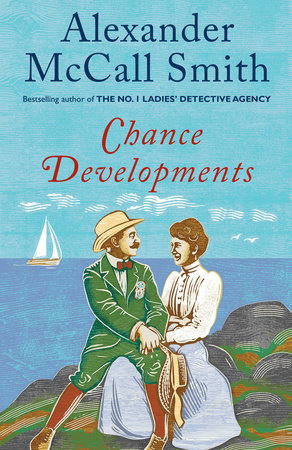Reading Group Center
- Home •
- Books by Category •
- Imprints •
- News •
- Videos •
- Media Center •
- Reading Group Center
Chance Developments
By Alexander McCall Smith
1. In the first story, “Sister Flora’s First Day of Freedom,” Flora decides, “I am my own person . . . I am entitled to look for God in this world in the way I choose to do” (p. 16-17). Why does she feel the need to leave the convent, and how does she choose to look for God once she leaves?
2. What do you think Flora will decide to do at the end of the first story?
3. Discuss the title of “Angels in Italy.” Why do you think the author chose this title? What does it mean in the context of the story?
4. A character in “Angels in Italy” says, “We all have something to be sorry about. Every one of us. And we often don’t have the chance to say anything . . . Then it’s too late” (p. 94). Who is sorry in this story and why? Is this sentiment justified? Have you experienced this sentiment at any point in your life?
5. Do you agree with the narrator of “Dear Ventriloquist” that “we can live with a minor fault-line in the heart—most of us do, in one way or another” (p. 106)? How does this statement apply to the story?
6. What is Ronald O’Carroll’s predicament in “The Woman with the Beautiful Car”? Do you agree with his decision to stay in his home village, or do you think he should have left for the city (like Flora in the first story)?
7. Do you think Ronald acted unethically when he put the tacks on the road, or does the end—or the good intention—justify the means?
8. Discuss the relationships between fathers and sons in the final story, “He Wanted to Believe in Tenderness.”
9. The narrator in “He Wanted to Believe in Tenderness” says of David, “He wanted to believe in tenderness, in kindness, but now, perhaps, it was too late. Something had been unleashed that would make it impossible to go back to what had been before” (p. 211). What do you think has been unleashed? How does David attempt to make a life for himself afterward?
10. At the end of his life, David calls himself “lucky” to have had a home he was proud of, to have fought in a war for a worthwhile cause, and to have had family members to love (p. 227). Would you agree that his life was a fortunate one?
11. Pain and tragedy persist alongside love and happiness in the stories. What tragedy, trauma, or difficult experience does each character go through and overcome in the book? Are some of the tragedies more devastating than others, or are they all equally meaningful in their own way?
12. Discuss the significance of chance encounters and unexpected events in this collection. How does this theme figure in each of the five stories? Can an undesirable surprise ultimately lead to desirable results or vice versa?
13. The stories McCall Smith creates about these photographs are, of course, the product of one author’s imagination. What stories do the photographs in Chance Developments evoke for you?
14. How does Chance Developments compare to other works by Alexander McCall Smith?


